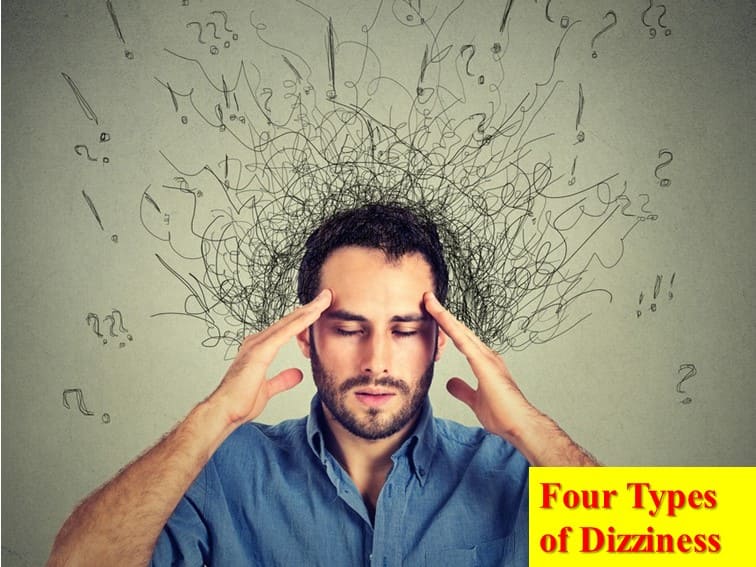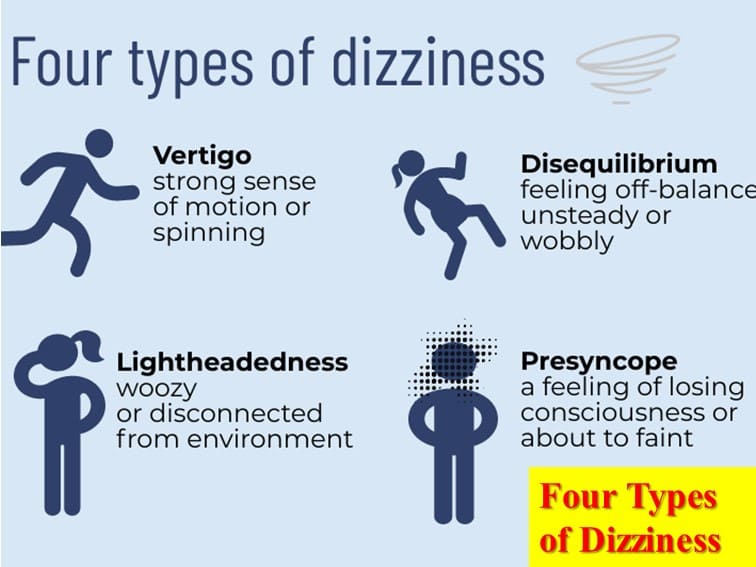When evaluating patients with dizziness, the neurologist’s initial effort should be directed at understanding the exact nature of the patient’s symptoms, because pathophysiology determines how the patient feels. The accurate knowledge of the symptoms determines the diagnosis. For instance, in patients with fainting or light-headedness, the cause of sensation may be cardiovascular rather than inner ear. In opposition, in patients with a sense of rotation or spinning, the affect may involve the inner ear or vestibular nerve on one side, although damage to the cerebellum and brainstem can also cause real dizziness. Therefore, it cannot be assumed that the cause of true dizziness in patients is peripheral. It can also be central. Therefore, any vertigo specialist in Hyderabad comprehensively evaluates the patient.
Peripheral Vestibular Disorders
Although careful history and examination often reveal major differences, disorders such as migraine, multiple sclerosis equivalents, and episodes of transient basilar artery ischemia may trigger peripheral vestibular disorders. Dizziness, which is a symptom of inner ear disease, is defined as the illusion of movement within one’s self or one’s environment.
As an expert vertigo doctor in Hyderabad, Dr. Vikram Sharma believes that Information is important to assess the patient’s current condition and medical history prior to diagnosing the cause of vertigo.
Myths and Facts about Vertigo
Myth: Vertigo is same as light-headedness
Fact: Light-headedness is a feeling of unsteadiness or when a person is about to faint or about to fall. It may lead to falls, balance problems and fractures in bones. In vertigo a person feels that the surrounding is spinning or they are spinning. Both the conditions may lead to sudden falls and balance problems.
Myth: Vertigo can affect anyone irrespective of age
Fact: Vertigo is usually uncommon in children or during childhood, but the risk increases as a person reaches adolescence and goes up after 20s. In elderly people, the odds are high as people older than 65 years’ experience vertigo quite often.
Myth: The key structures for balance are in the spine, leg, and feet
Fact: The vestibular system in the inner ear is an important part that signals about the location of the body in space. It is the most sensitive system. In association with the signals from the brain, muscles and joints also help in offering balance to the body in space.
Myth: Common cause of vertigo is heart attack
Fact: Mainly damage to the internal ear due to inner ear infection, a cancerous growth, disturbance in the ear fluids, and Meniere’s disease can prompt vertigo. Even migraine headaches, sinusitis infections, stroke, or side effects of medicines can also cause vertigo.
Myth: Vertigo cannot be treated by exercise
Fact: A simple head exercise can be helpful in getting rid of one of the common types of vertigo. BPPV or benign paroxysmal positional vertigo can be cured by setting the dislodged crystals in the right place of the inner ear. A vertigo specialist in Hyderabad does this by moving the head in a certain way to set the crystals back in the right place. Even a physiotherapist can do this.
Myth: Anxiety can Trigger Vertigo
Fact: Anxiety, stress and even depression cannot cause vertigo, but can make it worst. When an individual experiences a panic attack or have an anxiety disorder, he or she may feel nauseous, faint, or dizzy, and sometimes have a feeling of out-of-body experience.
Myth: If one has dizziness or vertigo problem, they should visit a primary care physician
Fact: Initially when a person sees a general physician, the physician sends that person to a Neurologist or an ENT specialist or otolaryngologist – who diagnoses and treats ear, nose and throat problems. If vertigo is related to ENT cause an ENT specialist will address the problem. If vertigo is due to a neurological issue, then a neurologist will take the case and treat it.
Myth: Watching TV can cause vertigo
Fact: Playing video games and 3D games that create a sense of movement can make the playing person feel temporary vertigo. Even 3D films can cause uneasiness and dizziness.
Vertigo Evaluation Test in Hyderabad
Patient’s history
Doctor asks the patient whether he has a sense of being pushed down. When the patient moves, he or she senses a peculiar sense of movement of objects (Oscillopsia).
Neurologist will assess whether the symptoms are related to anxiety disorder; sporadic, continuous or episodic. The doctor will also ask whether the condition is slow or progressive.
Trauma or injury to external ears resulting in unilateral hearing loss can also cause vertigo – doctors evaluate this condition.
The doctor will also examine whether the symptoms are associated with head and body movements. Whether the flu-like symptoms preceded the onset of vertigo.
Neurologist will also see whether the patient has warning signs or aura before the symptoms manifest – sensitivity to smells, sounds, lights, headaches and visual symptoms.
Dr. Vikram also evaluates patient’s family history of peripheral vascular disease, heart disease, or migraine or stroke. The other reasons of vertigo could be medicines – hypertensive medications.
Dr Vikram Sharma Before embarking on specific direct tests of the vestibular system, conduct a comprehensive examination of related systems such as the cardiovascular and nervous systems (especially the cranial nerves).
Which doctor to consult for vertigo?
A majority of the people go to a primary care physician or a general physician when they experience dizziness or vertigo. The doctor refers the patient to an ENT specialist or a Neurologist who specializes in the treatment of central nervous system disorders. If the cause of vertigo is neurological, then neurologist treats the patient.
If you are searching for top vertigo doctors, then meet vertigo expert – Dr. Vikram Sharma – an elite neurologist who specializes in the diagnosis and treatment of neurological vertigo.



